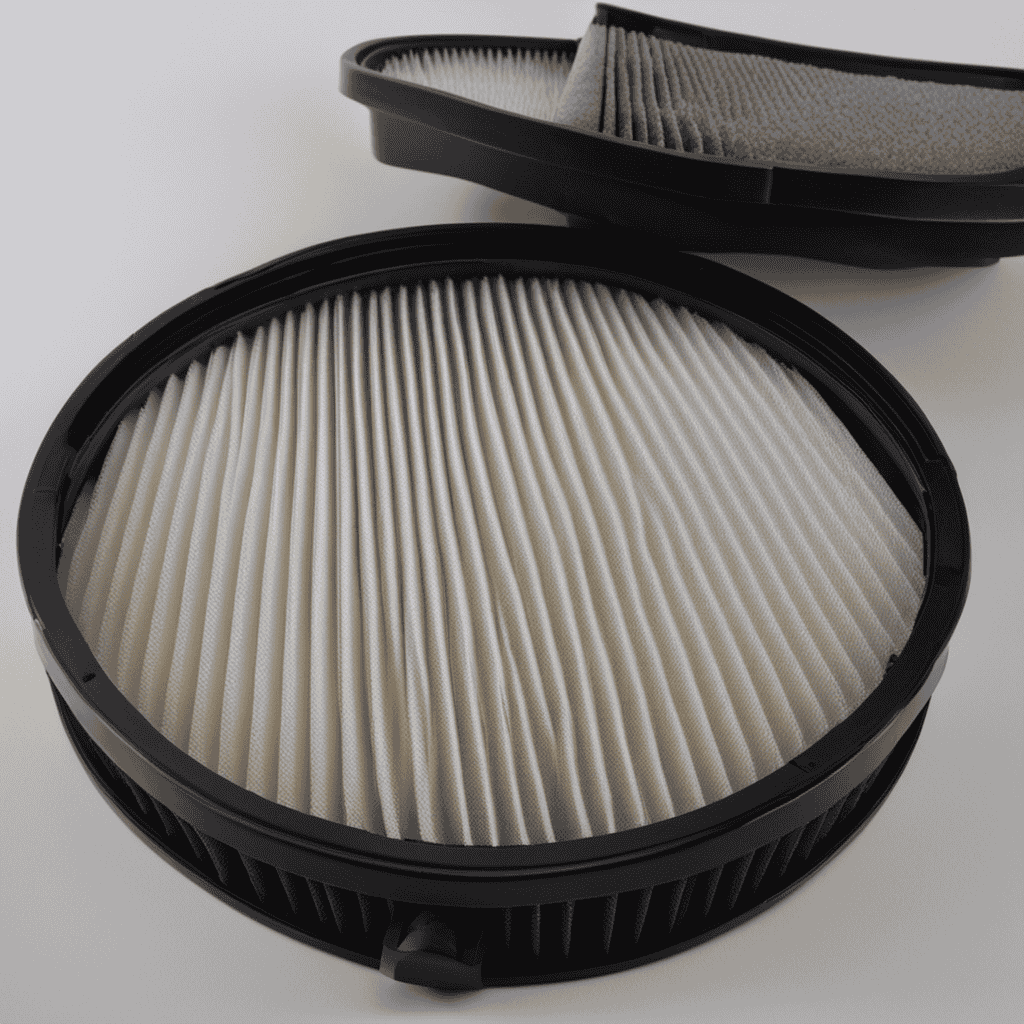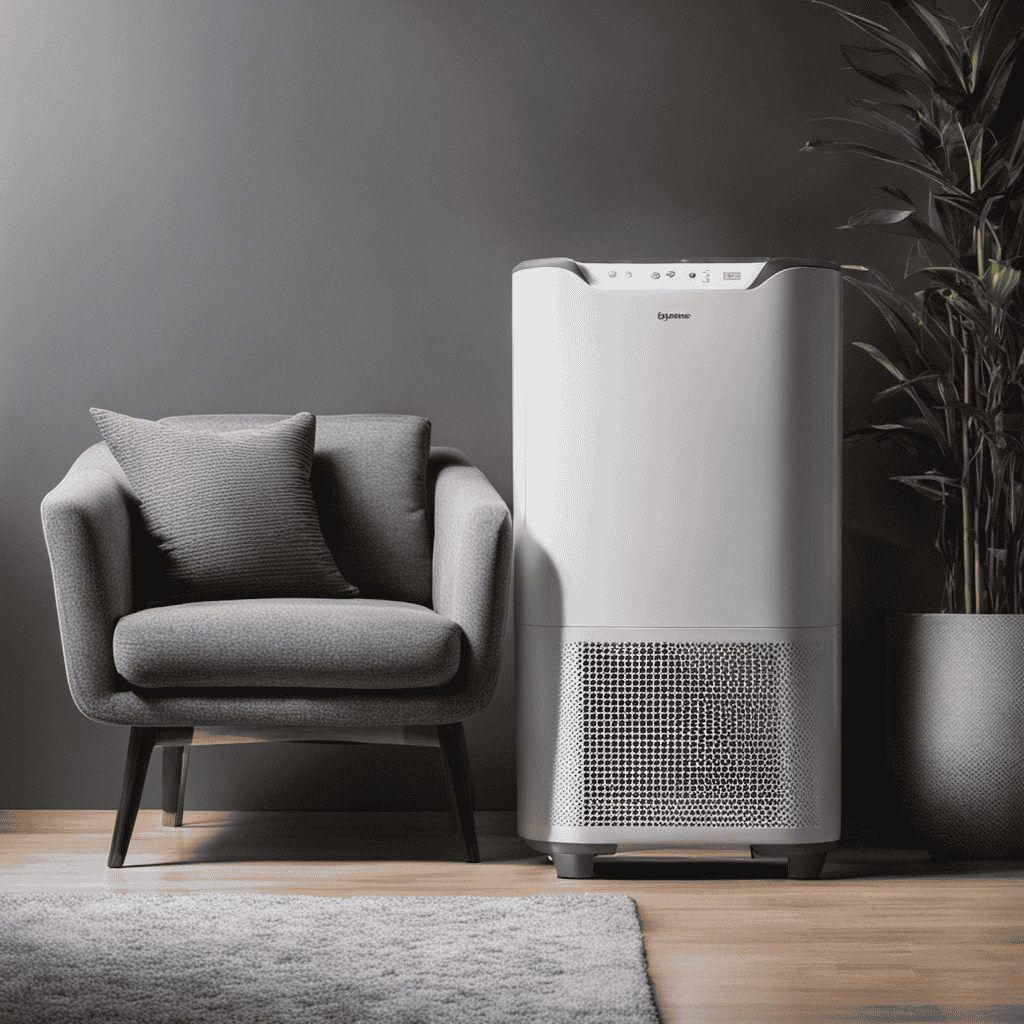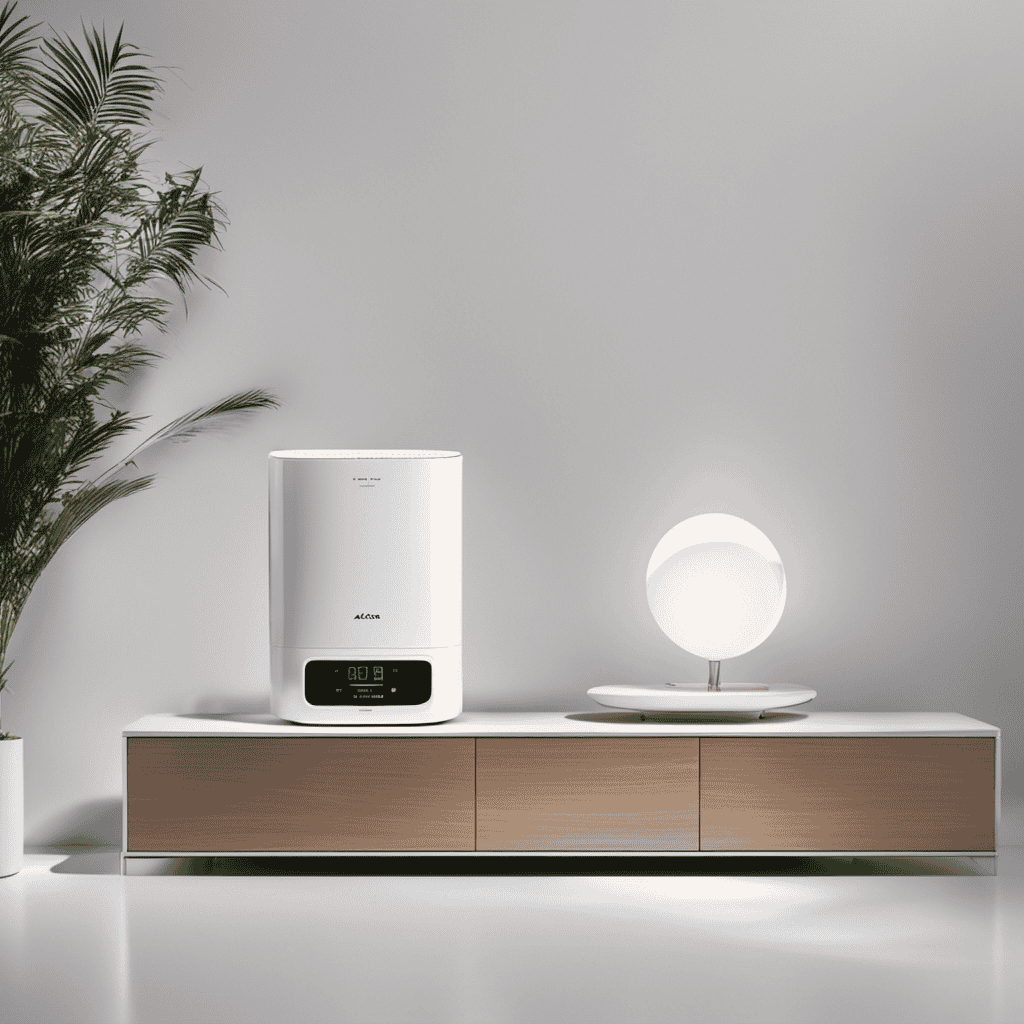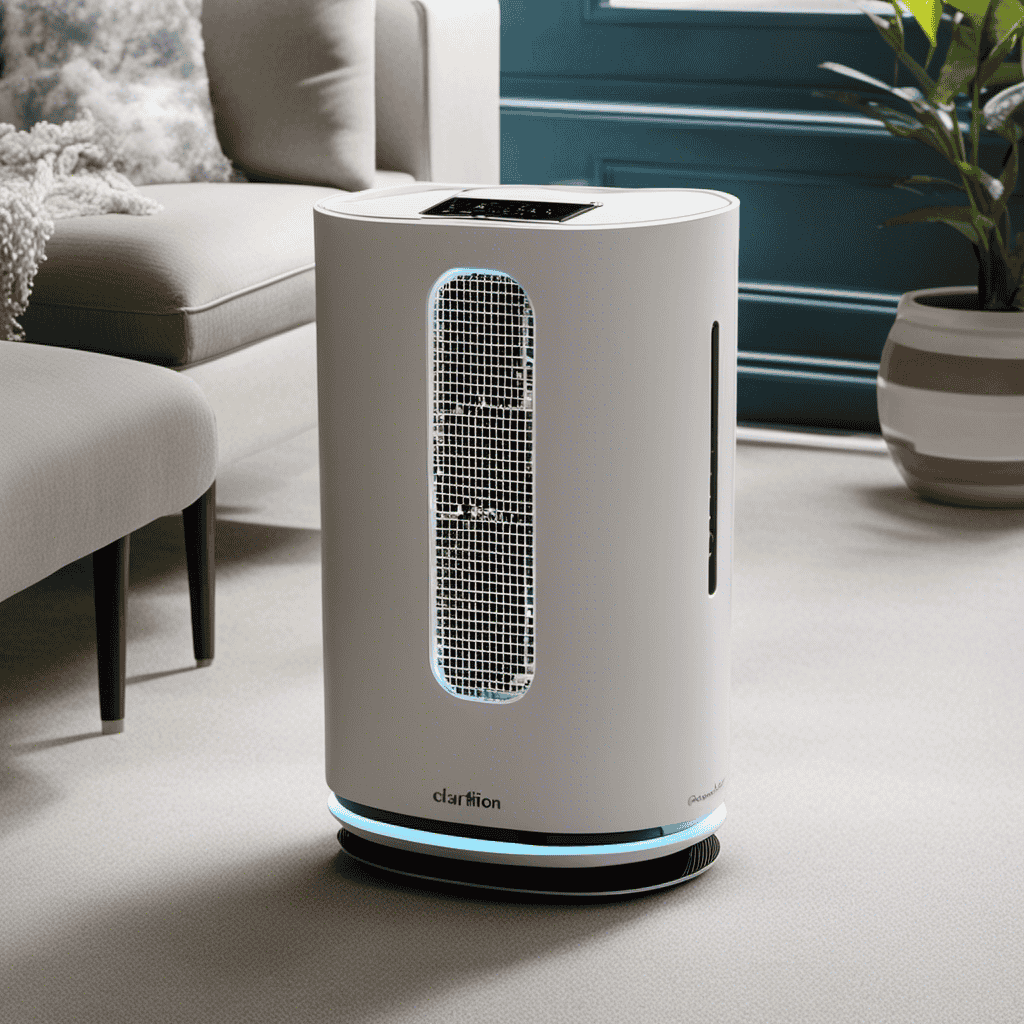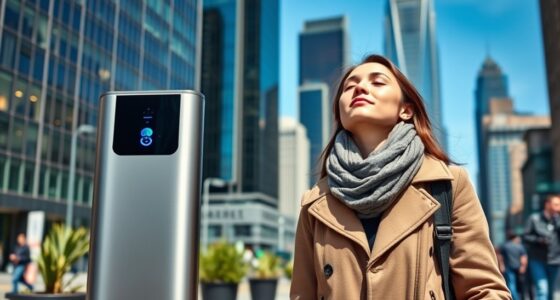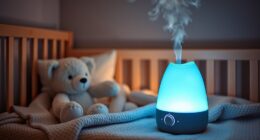It is crucial to emphasize the importance of regularly changing the filter in your air purifier. Failing to do so can lead to significant impacts on the quality of your indoor air.
In this article, I’ll delve into the factors that affect filter lifespan, provide recommended change frequencies, and highlight the telltale signs that your filter is due for a replacement.
By following proper maintenance techniques and understanding the different types of filters and their replacement intervals, you can ensure cleaner, healthier air in your home.
Key Takeaways
- Air purifier filters need to be changed regularly to maintain efficiency and effectiveness.
- The frequency of filter changes depends on the type of filter and the pollutants in the environment.
- HEPA filters should be replaced every 6 to 12 months, while activated carbon filters may need replacement every 3 to 6 months.
- Signs that a filter needs changing include reduced airflow, increased dust and allergens, unpleasant odors, and allergy symptoms.
Factors Affecting Filter Lifespan
Factors like air quality, usage frequency, and the presence of pollutants in your environment can affect how often you’ll need to change your air purifier’s filter.
Air quality plays a crucial role in determining filter efficiency. If you live in an area with high levels of pollution, your filter may need to be replaced more frequently.
Usage frequency is another key factor. If you use your air purifier daily for extended periods, the filter will accumulate more particles and require more frequent changes.
Additionally, the presence of pollutants in your environment, such as pet dander or cigarette smoke, can clog the filter faster, reducing its effectiveness.
Common mistakes in filter maintenance include failing to clean or replace the filter according to the manufacturer’s instructions and neglecting to monitor air quality regularly.
Recommended Filter Change Frequency
To keep your air purifier running efficiently, you should check the manufacturer’s recommendations for when to replace the filter. Proper filter maintenance is crucial to ensure optimal performance and clean air quality in your home.
The frequency at which you should replace your air purifier filter depends on various factors, including the type of filter, the level of air pollution in your area, and the usage of the air purifier. Generally, HEPA filters need to be replaced every 6 to 12 months, while activated carbon filters may need replacement every 3 to 6 months. However, it’s important to note that these are just general guidelines, and it’s always best to refer to the manufacturer’s instructions for your specific air purifier model.
Regularly replacing the filter will help maintain the efficiency and effectiveness of your air purifier in removing pollutants from the air, ensuring a healthier living environment.
Signs That Your Filter Needs Changing
One way to know it’s time for a filter change is if you notice a decline in the air quality in your home. Here are four warning signs that indicate your air purifier filter needs changing:
-
Reduced airflow: If you feel like your air purifier is not producing as much air as before, it may be due to a clogged filter. Reduced airflow can diminish the effectiveness of the purifier.
-
Increased dust and allergens: If you notice an increase in dust particles or allergens in your home, it could be a sign that your filter is no longer trapping these particles effectively.
-
Unpleasant odors: A dirty filter can lead to unpleasant odors in your home. If your air purifier is not eliminating odors as it used to, it’s time to change the filter.
-
Allergy symptoms: If you or your family members are experiencing more frequent allergy symptoms, such as sneezing, coughing, or itchy eyes, it could be a result of a filter that is no longer capturing allergens effectively.
Regularly changing your air purifier filter not only improves the air quality in your home but also provides numerous health benefits. By removing harmful pollutants and allergens, clean air can help reduce respiratory issues, allergies, and improve overall well-being.
Extending the Life of Your Filter
If you want to prolong the lifespan of your filter, make sure to regularly clean it using a soft brush or vacuum attachment. Cleaning techniques for air purifier filters are essential in maintaining their efficiency and effectiveness.
Over time, dust, dirt, and other particles accumulate on the surface of the filter, reducing its ability to capture airborne contaminants. By gently brushing or vacuuming the filter, you can remove these particles and restore its performance.
Additionally, opting for eco-friendly options for filter replacement can be beneficial. Some filters are washable and reusable, reducing waste and saving money in the long run. Others are made from sustainable materials, minimizing their environmental impact.
Types of Filters and Their Replacement Intervals
The lifespan of filters can vary depending on the type and frequency of use. When choosing the right filter for your specific needs, it’s important to consider the common filter materials and their effectiveness.
Here are four types of filters commonly used in air purifiers, along with their recommended replacement intervals:
-
HEPA Filters: These filters are highly effective at capturing small particles, such as dust, pollen, and pet dander. They typically need to be replaced every 6 to 12 months, depending on the level of pollutants in your environment.
-
Carbon Filters: These filters are designed to remove odors and chemicals from the air. They should be replaced every 3 to 6 months, as their effectiveness diminishes over time.
-
Electrostatic Filters: These filters use an electrostatic charge to attract and trap airborne particles. They can be washed and reused, but should be replaced every 3 to 4 years for optimal performance.
-
UV Filters: These filters use ultraviolet light to kill bacteria and viruses. They do not require replacement, but the UV bulbs should be replaced every 9 to 12 months to maintain their effectiveness.
Proper Maintenance for Long-Lasting Filters
To maintain your filters for long-lasting performance, it’s essential to regularly clean or replace them according to the recommended intervals. Proper maintenance is crucial for ensuring that your air purifier functions optimally and provides you with clean and healthy air.
Cleaning your filters involves removing any accumulated dust and debris, either by vacuuming or washing them, depending on the type of filter. It is important to follow the manufacturer’s instructions for cleaning to avoid damaging the filter.
Additionally, filters have a lifespan, and they need to be replaced when they become worn out or clogged. The replacement intervals can vary depending on factors such as the type of filter, the air quality in your area, and the frequency of use.
It is recommended to refer to the filter replacement guidelines provided by the manufacturer to ensure proper maintenance and optimal performance of your air purifier.
Is the Frequency of Dyson Air Purifier Filter Changes the Same for Other Brands?
When comparing the changing Dyson air purifier filter frequency to other brands, it’s important to note that each brand may have its own recommended schedule. Some brands may require more frequent filter changes due to differences in their filtration systems and the types of pollutants they are designed to capture.
Frequently Asked Questions
How Does the Size of the Room Affect the Lifespan of an Air Purifier Filter?
The size of the room can have an impact on the longevity of an air purifier filter. A larger room with more air to filter may cause the filter to become clogged more quickly, requiring more frequent changes.
Can I Use a Different Brand of Filter in My Air Purifier?
Ironic: So, imagine this, I decide to use a different brand of filter in my air purifier. Turns out, compatibility issues arise and my purifier’s performance suffers. Stick to the recommended filters, folks.
Is It Possible to Clean and Reuse an Air Purifier Filter?
It is possible to clean and reuse an air purifier filter, but the effectiveness may vary depending on the cleaning methods used. Reusable filters should be properly maintained and cleaned regularly to ensure optimal performance.
Can I Use My Air Purifier Without a Filter?
I wouldn’t recommend using an air purifier without a filter. The filter plays a crucial role in removing pollutants and improving air quality. Regular maintenance, including changing the filter, is essential for optimal performance and reaping the benefits of using an air purifier.
How Do Pets and Smoking Affect the Lifespan of an Air Purifier Filter?
Pets and smoking can significantly affect the lifespan of an air purifier filter. Pet dander and allergens can clog the filter faster, while secondhand smoke particles can also reduce its efficiency, leading to more frequent filter changes.
Conclusion
In conclusion, the lifespan of an air purifier filter depends on various factors such as the quality of the air, the size of the filter, and the usage of the purifier.
It is recommended to change the filter every three to six months to ensure optimum performance. Signs such as reduced airflow or unpleasant odors indicate the need for a filter replacement.
By regularly maintaining and cleaning the filter, its lifespan can be extended. Remember, ‘A stitch in time saves nine,’ so timely filter changes can save you from respiratory ailments and provide clean, fresh air in your home.
